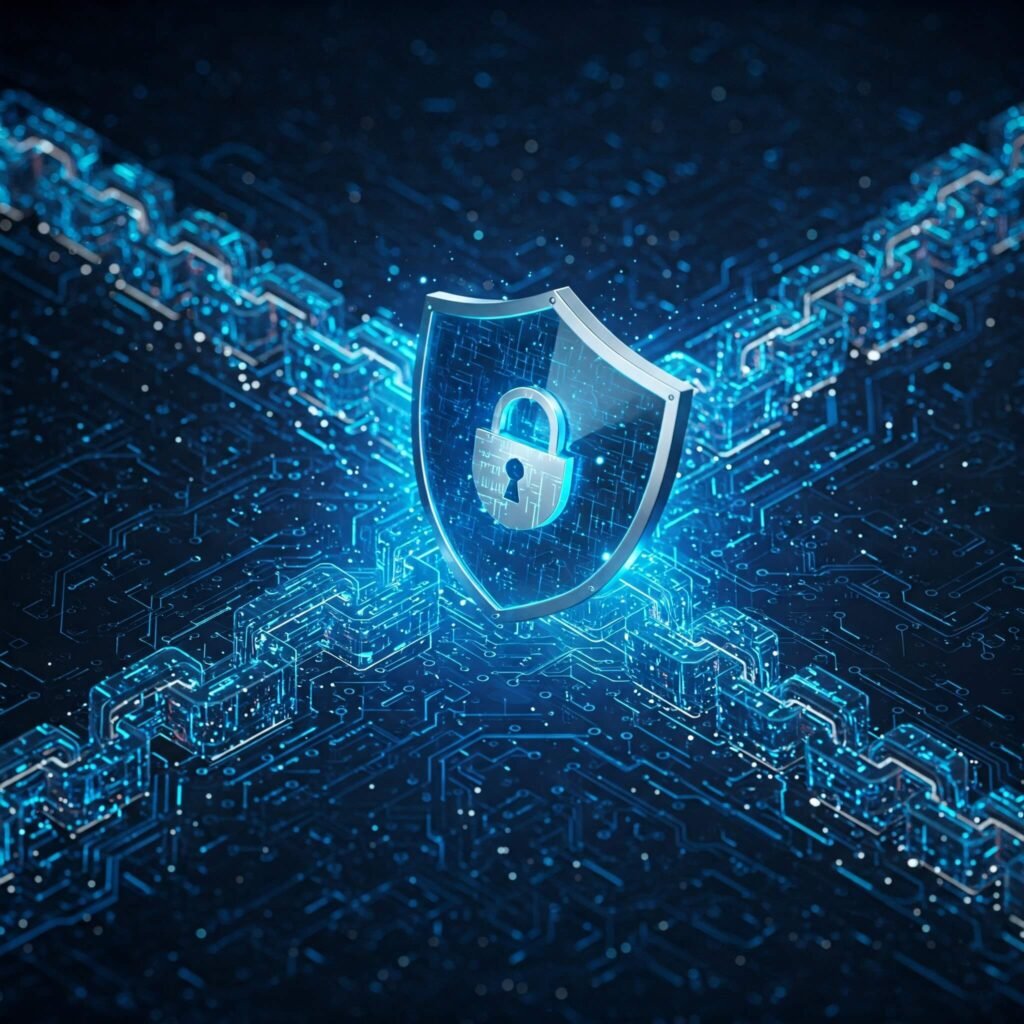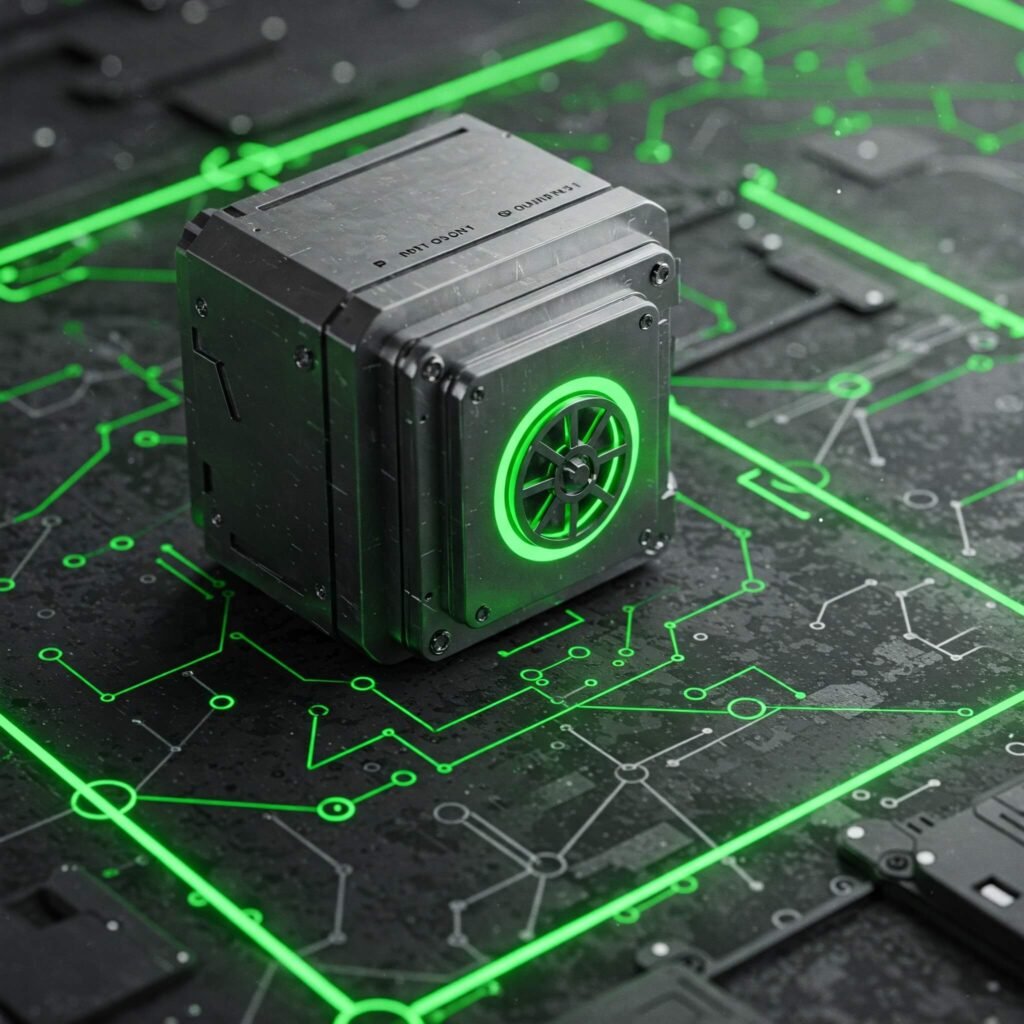How Blockchain Is Changing Digital Security: A Game-Changer in 2025
How blockchain is changing digital security is a topic you can’t ignore in 2025. Originally known for powering Bitcoin, blockchain’s decentralized, tamper-proof ledger is revolutionizing how we protect data online. From securing financial transactions to safeguarding healthcare records, blockchain offers unmatched security in a world of rising cyber threats. This guide breaks down blockchain’s impact on digital security with clear examples, actionable insights, and a friendly tone for tech enthusiasts and beginners alike.
What Is Blockchain and Its Role in Digital Security?
How blockchain is changing digital security starts with understanding its core. Blockchain is a distributed ledger that records data across multiple computers, ensuring no single entity controls it. Its cryptographic design makes data nearly impossible to hack or alter, redefining cybersecurity.
Key Security Features:
- Immutability: Once data is recorded, it’s locked in a chain of blocks, preventing unauthorized changes.
- Decentralization: No central server means no single point of failure for hackers to target.
- Transparency: All participants can verify transactions, building trust.
For example, Estonia uses blockchain to secure 1 million patient health records, ensuring privacy and integrity.

How Blockchain Enhances Cybersecurity
How blockchain is changing digital security lies in its ability to address vulnerabilities traditional systems face. Centralized databases, like those used by banks or social media platforms, are prime targets for hackers. Blockchain’s decentralized approach flips this model.
Cybersecurity Benefits:
- Data Protection: Cryptographic encryption ensures only authorized users access data.
- Fraud Prevention: Immutable records stop tampering, as seen in financial transactions.
- Secure Authentication: Blockchain-based digital IDs reduce identity theft risks.
For instance, Microsoft’s ION platform uses blockchain for decentralized digital identities, making logins safer than traditional passwords.
Outbound Link: Microsoft ION for details on decentralized identity.
Blockchain’s Role in Financial Security
How blockchain is changing digital security in finance is profound. In 2025, blockchain secures transactions, reduces fraud, and eliminates intermediaries, saving costs and boosting trust.
Financial Applications:
- Cross-Border Payments: Ripple’s XRP Ledger processes payments in seconds, with blockchain ensuring secure transfers.
- Smart Contracts: Ethereum’s self-executing contracts automate secure agreements, like escrow services, without banks.
- Tokenization: Blockchain secures tokenized assets (e.g., real estate), preventing unauthorized trades.
JPMorgan’s Onyx platform, handling $1 trillion daily, uses blockchain to ensure tamper-proof financial transactions.

Blockchain Protecting Healthcare Data
How blockchain is changing digital security in healthcare is saving lives and trust. With cyberattacks on hospitals rising, blockchain offers a secure way to store and share sensitive patient data.
Healthcare Applications:
- Patient Records: MedRec uses blockchain to encrypt and share medical records, giving patients control.
- Drug Traceability: Pfizer tracks pharmaceuticals on blockchain to prevent counterfeit drugs.
- Research Integrity: Blockchain ensures clinical trial data is tamper-proof, as seen in IBM’s trials platform.
In 2025, Estonia’s blockchain-based e-Health system continues to set a global standard for secure medical data.
Outbound Link: IBM Blockchain for Healthcare for insights into medical security.
Other Ways Blockchain Secures the Digital World
How blockchain is changing digital security extends beyond finance and healthcare. In 2025, it’s safeguarding diverse sectors with innovative applications.
Emerging Uses:
- Voting Systems: Blockchain ensures transparent, hack-proof elections, as piloted in Sierra Leone (2018).
- Supply Chain: Walmart’s Food Trust blockchain secures supply chain data, preventing fraud.
- Intellectual Property: NFTs on blockchain protect artists’ work, as seen on platforms like OpenSea.
- IoT Security: Blockchain secures Internet of Things devices, like smart home systems, against hacks.
Gartner predicts 20% of top global companies will use blockchain for security by 2025, reflecting its growing adoption.

Challenges of Blockchain in Digital Security
How blockchain is changing digital security isn’t without hurdles. While powerful, blockchain faces obstacles that slow its cybersecurity adoption.
Key Challenges:
- Scalability: High transaction volumes can strain networks, delaying secure data processing.
- Complexity: Implementing blockchain requires technical expertise, deterring some organizations.
- Regulation: Evolving cybersecurity laws create uncertainty for blockchain adoption.
Solutions like layer-2 scaling (e.g., Polygon) and user-friendly platforms are addressing these issues, making blockchain more accessible.
Outbound Link: Gartner Blockchain Trends for cybersecurity forecasts.
How to Leverage Blockchain for Digital Security
How blockchain is changing digital security is something you can tap into, whether you’re an individual or a business. Here’s how to get started in 2025:
Actionable Steps:
- Learn Blockchain Basics: Take free courses on Coursera or IBM Blockchain.
- Explore Tools: Experiment with Ethereum’s Remix for smart contract security or Microsoft’s ION for digital IDs.
- Join Communities: Engage on Reddit’s r/Blockchain or X for cybersecurity insights.
- Adopt Solutions: Businesses should assess blockchain for data security, like JPMorgan did for finance.
Individuals can use blockchain-based apps (e.g., Brave browser) for secure browsing.
Conclusion: How Blockchain Is Changing Digital Security Forever
How blockchain is changing digital security is clear: it’s building a safer, more transparent digital world. From protecting financial transactions to securing healthcare data, blockchain’s decentralized, tamper-proof design is unmatched. Despite challenges, its impact in 2025 is undeniable. Start exploring blockchain today to stay ahead in the cybersecurity revolution.
































